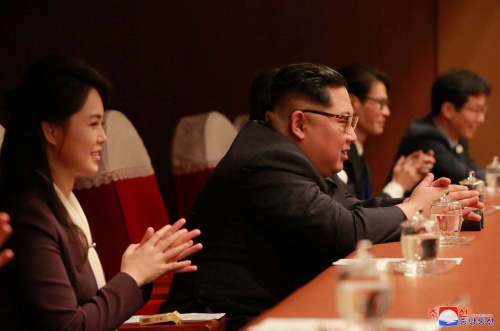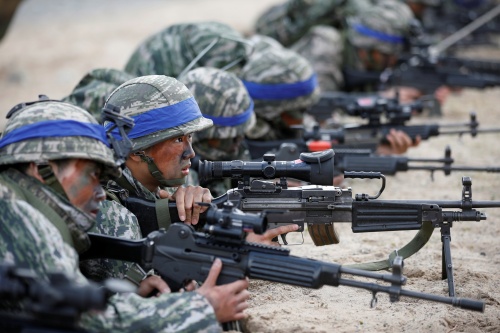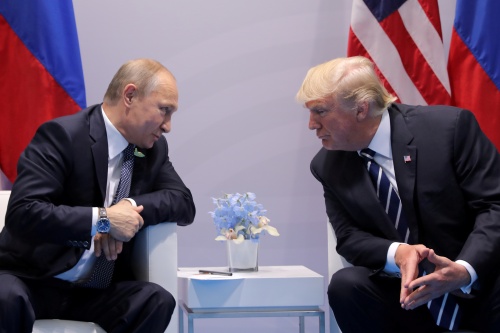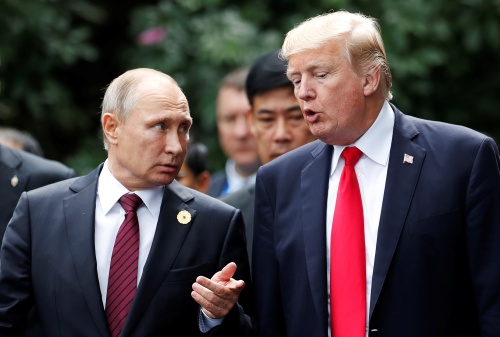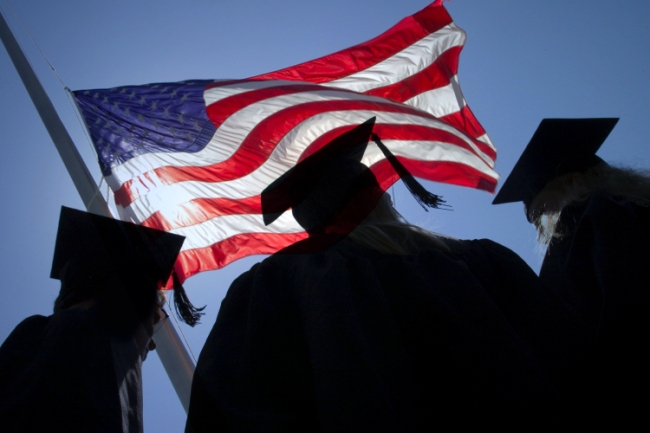As my plane descended over Dulles International Airport I was as anxious as a child on their first day of school to rush out of the door, through customs, and into the American sunshine. I had been gone for 6 months, and I was finally coming home. I have been back for a little less than two weeks, but in some ways my mind is still rambling, hitchhiking down some deserted Georgian road. It’s wonderful to be home, I missed my family and friends more than they know, but I can’t say I don’t miss the excitement of being an anonymous traveler in an unfamiliar land. That’s not to say that I’m bored here, it’s great to be back with the people I love – America is also the land of perpetual stimulation, something that has been somewhat overwhelming since my return. I got very used to long days in a Georgian village, where at times I would just sit and think for hours simply because there was nothing else to do. I lived a very simplistic existence during my time there. Life in America is certainly faster and more organized, like the manicured blades of grass in a suburban yard we strive for perfection and symmetry in our daily lives.
The first thing that struck me about America when I was driving home from the airport was how clean it was. Every yard was freshly cut and so green it hurt my eyes. There was barely any trash on the side of the roads, and most noticeably no farm animals blocking traffic. When I walked into my parent’s home for the first time in nearly 7 months the air-conditioning struck me like a blow from a heavyweight champion (which ironically was taken away 1 hour later after a freak storm that knocked our power out – I joked that I had brought Georgia home with me and apologized to my Dad and Stepmother). I had entered the uniform box-like shelter we call an American house once again. It was wonderful to see my family, and to wrestle with my slightly inept but adorable dogs, Junie and Zulie. Strangely enough, I didn’t stay at my own house my first night back in America, after going to a friend’s house to visit I was subdued by the chains of jet lag and fell asleep on their couch – guess I still haven’t learned how to sit still after all these years.
It’s hard to tell what the strangest thing about being back in America is, maybe I haven’t been back long enough to really reflect upon it. When you’re traveling you have a certain edge about you, a heightened sense of awareness. You realize you are in an unfamiliar place, and that you have to watch your back. That includes small things like holding on to your passport and wallet, but also not wandering into the wrong part of town (or country, as some areas in Georgia were occupied by Russian soldiers). These are things that you must also be aware of in the States of course, as many of us have often discovered while strolling through places like Baltimore, Maryland – where one block is full of nice Italian restaurants and Irish pubs and then the next resembles a set from the popular HBO show “The Wire” and you’re getting stared down like you’re dinner. But when you travel your eyes are really open, you take everything in, it’s like your senses are attached to some sort of volume-like knob and someone suddenly turned it all the way up. I miss that feeling – that travelers high. I know I will get it back someday, or likely in the near future when I move to Scotland for grad school, but I will admit I am in a bit of withdraw at the moment.
I have to say though, it’s great to be home. It’s nice to be around familiar faces, my family and close friends, and to hear about what they’ve been up to while I was gone. It’s also nice to share with them about my experiences over in Georgia. I have to admit I didn’t think anyone would really care to hear. Georgia is a small country, one that a lot of people haven’t even heard of. When I was in Istanbul I met a few Dutch girls and told them I’d been teaching in Georgia, one of them asked me if I was from Atlanta. I couldn’t help but laugh and said “No, I mean the Georgia neighboring the country we are currently in.” They still had no idea what I was talking about. But it’s been a pleasant surprise, wherever I have gone, whether it was on a cruise in Istanbul, the airport bar in Tbilisi, or back on a friends porch in Washington DC, people have been curious about my Eurasian adventures. It’s nice to talk about what I did and saw over there, it actually helps me put it all into perspective even more.
After coming home I continue to realize how lucky we are as American’s, and how privileged we are to live in a country like this. Even the simple pleasures of modern amenities, like consistent running water and a Western style toilet are a great joy to have again; and I hope American’s realize how fortunate they are to have them. America is certainly not perfect, we continue to make mistakes, and we have a number of shameful moments in our storied but short history. But I was thinking about what makes America so great yesterday, which was probably appropriate, as it was The 4th of July. America is great because its citizens realize it isn’t perfect, and we constantly strive to reinvent it and make it better. We criticize our country when it fails us, when it breaks our hopes and desires for it to be a beacon of hope and freedom in the world. It is a beautiful thing that we can criticize our government, and we must strive to hold onto that freedom. It is also very important for us to recognize and accept our flaws, and while we do not have a perfect record of doing this I think we are getting better at it. I love America, and I’m proud to come from here – I couldn’t help but dwell on that as I watched the fireworks over the water last night in Delaware, our nations first state. It’s good to be home, it’s good to be among family and friends, and it’s good to be an American. At the same time I continue to see myself as a citizen of the world, I just won’t forget where I came from.
July 4, one year later (July 4, 2013):
I wrote the above post exactly a year ago, and strangely enough I now find myself recently returned to the United States from another experience abroad, and yet again around the time of the historic birth of my country. For the past 10 months or so, I have been living and studying in Scotland. When I came back from Georgia, my transition back into American life was much more dramatic. Simply being able to shower every day and use a western style toilet felt like a novelty to me for several weeks. I had lived a drastically different life than the pampered and comfortable existence I had grown up in. In many ways, I hadn’t realized how privileged I am until that privilege was temporarily removed – it is in the absence of comfort that we learn its true value. Scotland is obviously a much different experience than Georgia, I can certainly shower every day and western style toilets are plentiful, but that does not necessarily mean the learning experience hasn’t been as rewarding and fulfilling as my time in Georgia was. Scots and Americans may speak the same language (this is debatable of course, as you might come to argue after your first attempted conversation with a Glaswegian taxi driver), but our cultures are extremely different. It’s hard not to reflect on your own culture and country when you are placed in an unfamiliar environment, and it forces you to ask yourself some tough questions about where you come from and who you want to be.
In my experiences abroad, I have come to find that there is a very hate/love relationship between the United States and the rest of the world. Most people would agree that Americans are incredibly positive people, we have a (relatively) positive narrative, and more often than not we believe we are trying to do the right thing (even when we are making a gigantic mess of things). Our pop culture is ubiquitous, our celebrities are known worldwide, and we continue to entertain the world with a variety of movies and television shows almost as diverse as the amount of choices we have in cereal at the local supermarket. Literally, no one does cereal like America, it’s still shocking to me to come back and just observe the sheer variety. Not only do we have Frosted Mini-Wheats, we have Mini Frosted Mini-Wheats, or Strawberry Frosted Mini-Wheats, or Giant Frosted Mini-Wheats, this seems to be the trend for every brand of cereal, the choices are endless. It’s certainly not like this anywhere else. No joke, the only place you can find American “breakfast” food like Pop-Tarts and Lucky Charms in Scotland, at least in Glasgow, is in a candy shop in the city center. Just food for thought. The American diet is, well, interesting (you could say the same thing for Scots, with haggis, black pudding, and fried Mars bars, which are all delicious btw). Don’t get me wrong though, I do love me some Lucky Charms.
At the same time, there is widespread animosity towards the United States abroad. Americans are often viewed as arrogant, self-centered, and ignorant. And unfortunately, I often tend to agree. Our government increasingly shows a complete disregard for the sovereignty of other nations, we typically assume that people/nations will bend over backwards and accommodate our every request and express discontent when they don’t, and we continue to exhibit a foreign policy that ignores culture and history. And these are not empty statements, these are developments that are plain to see if you look at drone strikes, our policy in Syria in terms of aiding the ‘opposition,’ the War in Iraq (we thought we would be liberators and gain a Shi’ite ally, instead we supplied Iran with a new ally), and basically our history of activities around Latin America and the Middle East in general. Not to mention, in the past decade or so we have illegally detained and tortured prisoners, started two foreign wars that have failed miserably and devastated those two countries, and engaged ourselves in a conflict that has no clear or perceivable end. Our government also continues to perpetuate the War on Drugs, a futile conflict that has had no perceivable impact other than billions of wasted dollars (not to mention millions of pointless marijuana arrests, someone is arrested for marijuana every 37 seconds, I think police have much better things to do), and one which fuels a conflict in Mexico that has claimed over 50,000 lives.
To keep things in perspective, yes, it is true that it’s very easy to sling rocks at those in the highest positions of power. The powerful will always be criticized, but that is because they MUST be criticized in order to ensure that this power is not abused. Simply being the most powerful nation in the world does not give a country the right to do whatever it pleases. But it does give that nation a tremendous responsibility to act with humility and compassion. Accordingly, I worry that the average citizen in the United States doesn’t know, nor do they care, what the government does in their name. Why do I say this? Look at the figures surrounding drone strikes for example. 66% of Americans support the use of drones, yet 44% of Americans admit to knowing little to nothing about the technology or how it is used.
“How can you kill your way out of a complex problem?” This is a question asked by Joshua Begley, an NYU grad student and the creator of Dronestream. Dronestream documents and reports every known drone strike committed by the United States via Twitter. In many ways this simple question offers a profound critique of the Obama administrations kill not capture policy, embodied by the hundreds of lethal drone strikes committed under its watch. The War on Terror is as much about culture and ideology as it is about the individuals who fight in it. As John F. Kennedy so aptly put, “A man may die, nations may rise and fall, but an idea lives on.” Killing individuals may disrupt terrorist networks, but it does not eradicate the root of the problem. It is a policy that has the potential to perpetuate, instead of end, the War on Terror.
These are things that I would challenge Americans to think more deeply about. The recent NSA scandal for example: Reactions to this entire scandal have been so black and white. Yes, it is reasonable for people in a democratic and liberal society to assume they are not being monitored unjustifiably. Yes, we’ve seen how this sort of trend within in a state can lead to major violations of individual freedoms – in the USSR, in East Germany with the Stasi. It’s not something you want to move towards, there’s no argument there. But Americans, in my opinion, need to grade their responses to these sort of developments, it’s not all black and white. Many people have blamed Obama for this entirely. Well, look at it from the political angle: The NSA ask him to approve this program, he doesn’t, there’s an attack like Boston, and they leak that he didn’t approve the program and consequently he looks responsible for a terrorist attack. Yes, this is hypothetical, but still valid. Politics is a dirty game and the NSA have been running programs like this for decades (it’s been around since 1952, and its existence wasn’t even revealed until the 70s), they are obsessed with gaining intelligence by any means necessary, so this is not necessarily entirely Obamas fault.
Secondly, it is troublesome to me that Americans are mostly indignant when their own rights appear to be violated for the sake of security, but the majority of the time we are perfectly satisfied when the rights of others are violated on the same basis. During the Bush administration, polls showed that many Americans approved of the use of Enhanced Interrogation Techniques (torture) against terrorists. As I’ve already mentioned, polls also show that most Americans approve of the use of drones. We also approved of the invasions of Afghanistan and Iraq overwhelmingly at their onset, people like to forget that – America was hungry for revenge, and we are complicit in what happened in these places, and to make up for it we must never forget what happens when our passions overcome reason in our actions. Thus, we are perfectly okay with violating the rights of millions of people around the world, which is not only morally abhorrent, it does significant damage to our reputation and standing with millions of people, and it alienates and drives people towards extremism, perpetuating this already discombobulated War on Terror that we are engaged in (which may never ever end). And these are violent palpable actions, that impact these people every single day – we would never have even known about this NSA program had it not been leaked (which is part of the reason it’s so disconcerting, but at the same time what I’m trying to say is did it really impact your every day life?). The American judicial system is FAR from perfect, there are some sickening examples of this even in the present day (Bradley Manning for example, and now Edward Snowden), but we rarely throw people into jail for absurd reasons (other than marijuana in my opinion), yes it does happen, but our record in this regard is far better than in places like Thailand, where you tweet something negative about the King and you’re on trial for it a few months later. All I’m saying is yes, it’s not okay, but at the same time, don’t fall too far on one side of the debate or the other, it’s a complex world, and there are shades of grey.
That being said, I love America, but I will continue to be critical of it. I truly believe America has more potential than any nation or empire that has ever existed to promote peace around the world. However, you can’t promote peace through war, that is simply oxymoronic. Hence, potential is the keyword in the above statement. Is the world dangerous? Yes, it can be. Are there constant threats to our security and the security of others? Yes… and no. Should we be the world police? In my opinion, no, because that means our interests will be placed above the interests of others, and in a culturally relative world our interests are not always in the best interests of others. That’s a whole lot of ‘interests,’ and that’s the point, the world is complex and confusing, and a simple showing of might and power cannot fix that. Not to mention, when America involves itself in the business of other nations, a new enemy will always be made, someone will always get the sore end of the deal. From a practical standpoint, someone might say, “So what? If our interests are served, and we get to help someone out in the process, why shouldn’t we?” Because you will create long-term problems that eventually destabilize our interests, not to mention serve to the detriment of the people we attempted to help in the first place (look at the Taliban in Afghanistan as a prime example). Like it or not, our values are not right for everyone.
President Obama is not perfect, and I’m not going to claim that here, but I do have to commend him for being willing to discuss America’s flaws, and for a willingness to admit we have made numerous mistakes in the past. Some would accuse him of being an apologist (Republicans like Romney). I find that ironic, given Republicans claim their position on politics comes from a firmly cemented distrust of government – an ancient and honorable American ideal. Simply put, I believe a healthy critique of America’s past is in many ways the ultimate exemplification of cynicism towards the government. How will America ever improve if we cannot analyze and critique our actions? We are not perfect and we should never claim to be. American citizens that are critical of America are often accused by other Americans of being unpatriotic, I disagree wholeheartedly. A person who is willing to criticize their nation and government will always be more patriotic in my eyes, because it means they want it to improve, they desire a better life for future generations, and they are not afraid to voice their opinions.
America is a fantastic idea, a wonderful experiment, and a beautiful dream. In my opinion, that dream has not been fully realized. In my opinion, that dream sometimes becomes a nightmare. But that does not mean we should give up on that dream. Nothing worth fighting for comes easily. But in this day and age, the greatest danger Americans face is apathy. A lack of interest in our nations politics and future, a belief that we are in the right all the time, and a belief that what we believe is what’s best for the world all the time – are the greatest dangers we face. Obama recently stated in a counterterrorism speech (May 23, 2013) that homegrown extremism is the greatest threat we face in terms of security. I believe homegrown extremism can also come in the form of a blind acceptance of the status quo. To me, that is an extreme display of apathy, and an extreme display of irresponsibility. We have been born into lives of extreme privilege in this country, and with that comes an extreme responsibility. We have a responsibility to ask questions, to take action, and to be more humble. We should not expect out of the world that which we would not expect out of ourselves. We cannot hold nations to standards that we do not live up to on our own.
America has come a long way from its humble beginnings. My family came here in 1750. This was a time when life in the colonies was so dangerous and uncertain the king of England was literally giving land away for free to anyone who paid for their own passage across the Atlantic. This was known as the headrights system – pay your passage, and receive 50 acres of land. The first man in my family to come here was named John Haltiwanger, a poor farmer from Austria. He fought in the American Revolution. He distinguished himself when he was asked to carry dispatches through enemy territory. He came across a British patrol, and was forced to hide in a haystack. The British were aware he might be in the area, so they attempted to flush him out by thrusting their bayonets into the hay. He was stabbed and wounded, but he didn’t make a noise, he was able to escape and successfully delivered those dispatches. This is recorded in the Library of Congress. I’m proud of that fact, and I’m proud that the Haltiwanger’s still own the land that was given to us before the United States even truly existed. I’m proud to be American, I’m proud that I was born and raised in the capital, and I will never be ashamed to be an American, regardless of my concerns with some of our actions throughout history and our current direction – I will always be proud to be an American.
In my opinion, America is and was always meant to be a nation for all peoples. It has not always worked this way, and we struggle with this ideal even now, as an immigration reform bill moves through the House and as the fight for marriage equality rages on. But in my opinion, we have slowly progressed forward to embody and realize this ideal. This has not been a linear progress, sometimes we take steps backwards – but there has been progress. When my parents were born, black and white people could not legally get married in many states. In many places non-whites could not even use the same restrooms or eat at the same restaurants as whites. In many cases, non-whites were violently oppressed in order to perpetuate the racist and apartheid-like status quo. The 13th Amendment had made slavery illegal, but Jim Crow still made life a living hell for many African Americans living in the South. Many Americans, including whites, would not stand for this, which led to the Civil Rights Movement – a monumental and peaceful push for political change. Eventually, the government could no longer ignore the cries of its people, leading President John F. Kennedy to draft the Civil Rights Act, which was later signed by Lyndon B. Johnson. The signing of the Civil Rights Act of 1964 was a historic step in the right direction for Americans, it didn’t change things overnight, but it was a promise by the government to defend the rights of all races. And by the time I was legally old enough to vote in a presidential election, I voted for a black man named Barack Obama. Thus, to say we have not made progress would be a denial of an extremely apparent truth. Anything is possible in this country, as long as we continue to play an active role in its politics. This includes our foreign policy, we need to be concerned with our governments actions in matters that have an impact beyond our own immediate lives. When it comes down to it, we live in a complex and interdependent world, it is in the interest of future generations for our world to move towards more compassionate and cooperative means of interaction. For the most powerful nation in the world, that means a more active engagement from its own populace in terms of concern over the actions taken in their name around the world. That being said, Happy Birthday America! Thank you for everything you’ve done for me, and everything you continue to do. I know I’m harsh sometimes, but that’s only because I believe in you and I want you to be better.
Sometimes I feel like where you come from, your nation, is both your parent and your child. When you are a kid, you look up and revere your parents beyond belief. They are infallible superheroes. As you grow older, you realize they are human beings just like you, with faults and flaws, capable of great successes and failures. As you grow even older, you begin to take care of your parents, as responsibility is something that is passed on to every new generation. I believe it is the same with ones country. It is a reciprocal relationship, a parent and child relationship, a familial relationship. That being said, I hope we start to see the whole world as our family, taking care of its citizens as we would our own. This is how we can build a better tomorrow, and this is what I believe the Founding Fathers meant when they fought to establish a nation for all peoples. America is not an exclusive idea, it is not meant to belong to a privileged few, but to everyone. To many, this may sound like empty rhetoric. But as long as a few men and women fight to uphold and promote this ideal, as a small band of colonists did 237 years ago, I will continue to have faith in the country I come from. Happy 4th of July. Happy Birthday America.
E PLURIBUS UNUM
Out of many, one.
One last reminder why America is a nation for everyone:
The
American story has long been written by immigrants.On July 4, 1776…”Fifty-six founders put their names on a piece of paper. Up until that moment, none of them were American. Even those who had spent their entire lives in one of the thirteen colonies had grown up in another country.” —Cecilia Muñoz, White House Domestic Policy Council

